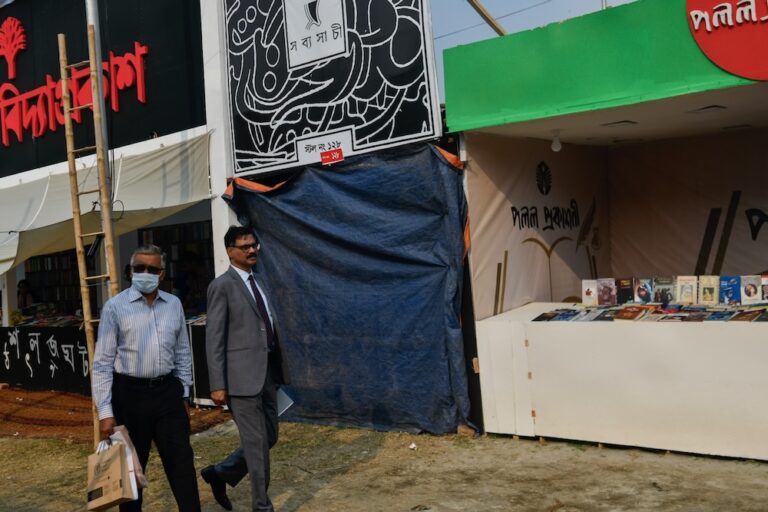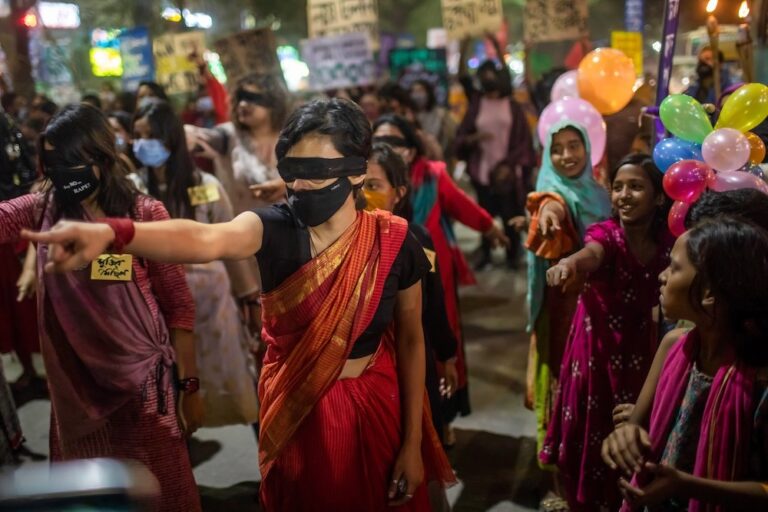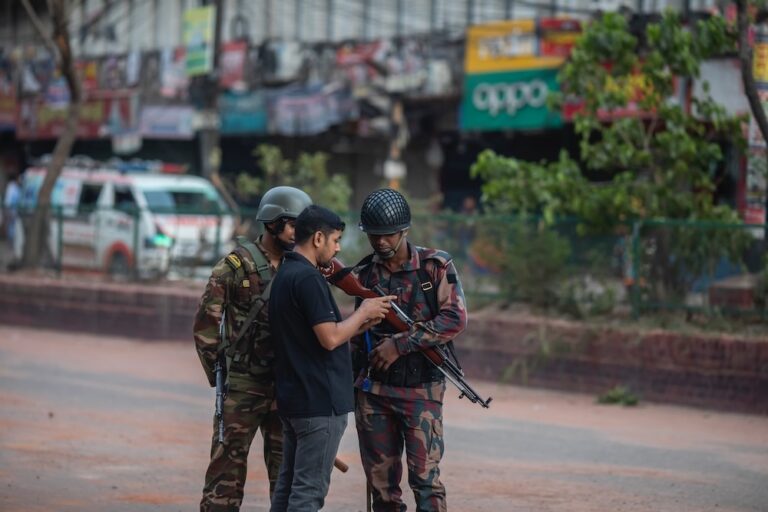(CPJ/IFEX) – In a 7 May 2003 letter to Prime Minister Khaleda Zia, CPJ expressed deep concern over several recent attacks against the press in Sitakunda, an industrial town in Chittagong District, in southeastern Bangladesh. The organization is particularly worried about the fate of journalist Mahmudul Haq, who was arrested on 6 May, and journalist […]
(CPJ/IFEX) – In a 7 May 2003 letter to Prime Minister Khaleda Zia, CPJ expressed deep concern over several recent attacks against the press in Sitakunda, an industrial town in Chittagong District, in southeastern Bangladesh. The organization is particularly worried about the fate of journalist Mahmudul Haq, who was arrested on 6 May, and journalist Atahar Siddik Khasru, who disappeared on 30 April after protesting the mistreatment of Haq.
On 29 April, activists associated with the ruling Bangladesh Nationalist Party (BNP) accompanied Sitakunda police in a raid on the home of Haq, a veteran journalist who is the editor and publisher of the local magazine “Upanagar”. Nurul Islam, general secretary of the Sitakunda branch of the BNP, had filed a case against Haq accusing the journalist of extortion. Haq, who was not at home at the time of the raid, has written critically about corruption committed by politicians and police in Sitakunda.
The next day, 30 April, Khasru, president of the Sitakunda Press Club and local correspondent for the national daily “Ittefaq”, visited the editor’s home. According to family members and colleagues who spoke to Khasru later that day, the journalist received a call on his mobile phone from Islam while at Haq’s home. Khasru said Islam threatened to “teach him a lesson” if he continued to support Haq.
Several sources told CPJ that Islam warned Khasru, who had been kidnapped and tortured for his reporting in June 2001 during the rule of the Awami League party, which is now in the opposition, that, “You escaped last time during the Awami League period. This time we won’t make that mistake.”
That same evening, Khasru disappeared, and his family fears that he has been kidnapped for protesting the harassment of Haq. Khasru was last seen in the busy Dewanhut area of Chittagong, where a friend dropped him off at around 9:30 p.m (local time).
On 6 May, police in the capital, Dhaka, arrested Haq, who had gone there to seek pre-arrest bail and to meet with officials about Khasru’s possible abduction. Police took Haq back to Chittagong on the morning of 7 May, and a magistrate ordered him to be held in police custody for three days pending an investigation into the extortion charges filed against him.
Also on 6 May, Khasru’s brother filed a case with Sitakunda police accusing Islam and his followers of kidnapping the journalist. On 7 May, in the afternoon, Osman Ghani Mansur, the Chittagong bureau chief for “Ittefaq” and a relative of Khasru’s, received a threatening call on his mobile phone. The caller, who refused to identify himself, told Mansur that if the family does not drop the case against Islam, they will find Khasru’s dead body. Mansur immediately alerted local police, reporting that the call came shortly after 3:00 p.m. from a Dhaka-based phone.
Local journalists in Sitakunda have also received anonymous calls threatening them not to report on this case. In addition, on 6 May, a group of men assaulted about 15 journalists in Sitakunda after they had delivered a petition to the town’s chief administrative officer protesting Khasru’s disappearance.
CPJ greatly appreciates Prime Minister Zia’s government’s efforts to prosecute the assailants of Tipu Sultan, a reporter who was nearly killed in January 2001 by supporters of an Awami League politician in Feni District. While attacks against journalists in Bangladesh are regularly committed with impunity, members of Prime Minister Zia’s administration have pledged to hold Sultan’s assailants accountable for their crime. Last month, a court in Feni issued arrest warrants for 13 suspects, including Joynal Hazari, the Awami League politician who is believed to be responsible for the attack. Sultan received CPJ’s International Press Freedom Award in November 2002 for his remarkable courage and dedication to independent reporting.


